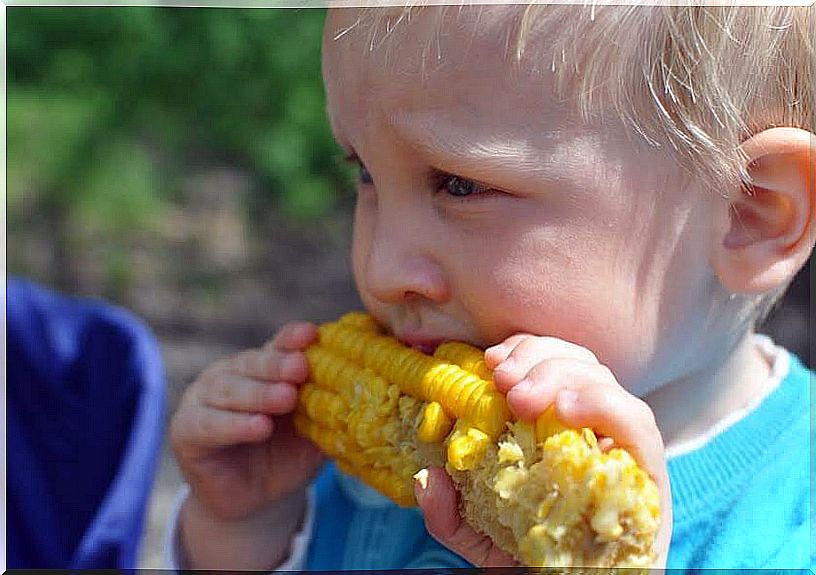How To Overcome The Time Of Lack Of Appetite In Children?

The time to feed our little ones can become a headache if we notice that he leaves part of his food on the plate. Pay attention to the tools that we will give you below to help you overcome the lack of appetite .
As mothers we must be careful when we prepare to feed our children. We must insist that they consume their food, but without putting too much pressure on them because we can generate in them a certain apprehension that will end up reinforcing their rejection of food.
So we must be very subtle with the strategies we use when trying to convince them that they should eat everything. Loss of appetite is more common than we might imagine, and it can occur in children between one and three years of age, who already have enough character to refuse to do something that they do not want or that they do not like.
When you notice that the days when he does not eat his lunch are repeating themselves very frequently, do not hesitate to consult with your pediatrician, who will surely indicate a series of rigorous tests to check that his health is fine.
If so, it is likely that you recommend giving your little one a vitamin complex that compensates for all the nutrients that he does not want to consume.
Parents should avoid at all costs transmitting stress to their children at mealtime
A rule of thumb indicates that as long as the child does not lose weight due to his lack of appetite, there is no reason to be distressed. In this sense, it is necessary that you monitor their size and weight every 15 days, in order to avoid a possible picture of malnutrition .
Another factor that we must take into account is that the ina Petence must be assumed as a symptom, the causes of which can be of various kinds. In other words, the only way to help our children overcome their lack of appetite is by knowing what causes it.
Identify the causes of loss of appetite

According to Irene Chatoor, child psychiatrist and prominent professor at George Washington University in the United States, lack of appetite in children can be due to various causes that must be treated to eradicate symptoms.
For this reason, it created the program called Identification and Management of Feeding Difficulties for Children, according to which the causes could be the following:
- The presence of a chronic disease. The first thing to be ruled out is that children or infants who have difficulty eat are not suffering from a disease that affects their appetite.
- Fear of feeding . This fear arises in children after they have experienced a traumatic event, such as choking on a piece of food; or it can also be treated by remembering the sensation of a sore throat from any condition.
- Little adaptation to new flavors. Many times a child’s inappetence is only due to their reluctance to experience new tastes, smells, and textures. When this happens, it is not a good idea to pressure them, because this will only make their predisposition to certain foods worse.
It is essential to trust that children will consume the amount of food they need
- Negative influence of parents. Many times mom and dad believe that the child is not eating enough, when the truth is that he is consuming all the nutrients he needs for his development. Faced with pressure from adults, children often reject food.
- Lack of encouragement . Yet boy sad or downcast, it is difficult for him to eat, just as it can happen to any adult. Faced with this possibility, it is good to ask him what keeps him down.
- Too energetic child . When the child has excess energy, he will remain happy, bouncing around and distracted. If this is the case, it is good to announce an hour before each meal that you should calm down to devote yourself to eating without distractions.
How can we help them?

We must know that with screams and despair we are not contributing anything. So the first thing we must do is fill ourselves with patience and disposition when it comes time to feed the child.
- Experts recommend that the rest of the family eat at the same time as the baby, so that he can see first-hand how he should feed and build the habit.
- Put aside distractions. Turn off the TV, put away toys and electronic devices with which the child usually plays.
- Teach him that when it’s time for dinner or lunch, he should put his full attention on the table and the food.
- Make plates d fun. There is no better way than to present vegetables and greens than by designing figures or dolls that capture the child’s attention.
- Remember that the main thing is not to take mealtime as a problem, because the child will feel your stress and will not want to eat.









